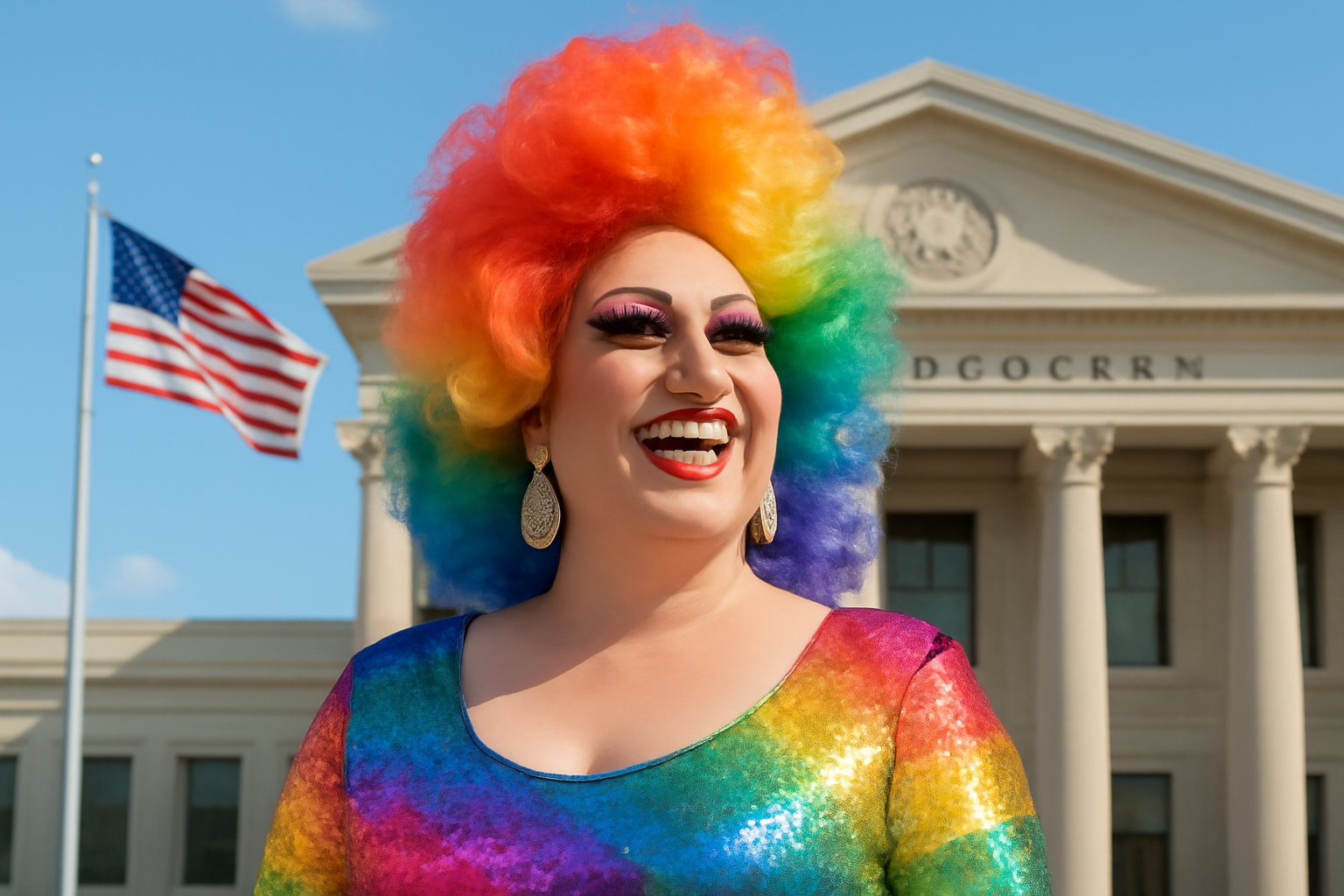
In a landmark ruling that has set a significant precedent for LGBTQ+ rights, a federal judge has declared that Texas A&M University's ban on drag performances is unconstitutional. This decision marks a pivotal moment in the ongoing struggle for free expression and the rights of LGBTQ+ individuals within educational institutions.
The case arose when Texas A&M University, under pressure from certain political groups, implemented a policy that restricted drag performances on campus. The university's administration argued that these events were disruptive and not in line with the values they wished to promote. However, many students and faculty members saw this as a direct attack on the LGBTQ+ community, which has long used drag as a form of self-expression and cultural commentary.
The Legal Challenge
Shortly after the ban was announced, a group of students, supported by civil rights organizations, filed a lawsuit claiming that the university's actions violated their First Amendment rights. They argued that drag performances are a form of protected speech and that banning them was an act of censorship.
The plaintiffs included members of the university’s LGBTQ+ club, as well as several drag performers who had previously participated in events on campus. These individuals testified that drag was not only a form of entertainment but also a powerful medium for political and social commentary. They contended that the ban was an attempt to silence marginalized voices.
The Court's Decision
In his ruling, the judge emphasized the importance of free speech, especially in an academic setting. He stated that the university's policy was overly broad and not narrowly tailored to achieve any legitimate educational goals. “The essence of higher education is to foster an environment where diverse ideas can be expressed and debated," the judge wrote in his opinion. "By imposing a ban on drag performances, the university stifles creativity and suppresses the voices of a significant segment of the student body.”
The ruling pointed out that while the university has the authority to regulate events on campus, any such regulations must not infringe upon the constitutional rights of students and faculty. The court found that no substantial evidence was provided to support the claim that drag performances were inherently disruptive or harmful to the university community.
Reactions and Implications
The decision was met with widespread approval from LGBTQ+ advocacy groups and free speech advocates. "This is a victory not just for the LGBTQ+ community but for everyone who values the freedom of expression," said a spokesperson for one of the organizations that supported the lawsuit. "It is a reminder that even in challenging times, the constitution remains a powerful protector of our rights."
On the other hand, some conservative groups expressed disappointment with the ruling, arguing that the university should have more autonomy in deciding what types of events are appropriate on its campus. Despite this, the court's decision is unlikely to be overturned, given the strong constitutional arguments presented.
For Texas A&M University, the ruling means reviewing and potentially revising their policies to ensure they comply with constitutional standards. University officials have stated they are considering their options, including whether to appeal the decision or to work with students to find a mutually agreeable solution.
Looking Forward
This case has broader implications for universities across the country. Many institutions are watching closely, as this ruling could influence how they handle similar issues. The balance between maintaining a respectful campus environment and upholding the principles of free speech is a delicate one, and this ruling provides valuable guidance.
As the conversation around LGBTQ+ rights and free expression continues to evolve, this ruling affirms the fundamental principle that universities should be places where diverse and sometimes challenging ideas can be explored and discussed without fear of censorship.
The victory is a reminder of the power of activism and the legal system in protecting civil rights, and it serves as an inspiration for future generations of students advocating for social justice and equality.
Related Posts
Drag Night Extravaganza: Daddies & Baddies at Atlantic City's Anchor Rock Club
Atlantic City, NJ, isn't just about its casinos and boardwalk—it's a hub bursting with energy and entertainment. One event that truly captures this spirit? The "Daddies & Baddies" drag night at Anchor Rock Club. This vibrant night celebrates amateur drag in all its glory, offering a kaleidoscope display where creativity and community unite. If you're looking where inclusivity and creativity take [...]
Pedro Pascal Criticizes JK Rowling's Celebration of Supreme Court Ruling
Pedro Pascal responds passionately against JK Rowling's stance Pedro Pascal, known from his role in *The Last Of Us*, has openly criticized JK Rowling following her support over a controversial Supreme Court decision in Scotland. The ruling, which has ignited a wave debate, stated that under 2010's Equality Act, "women" refers strictly "biological women." This decision came after a lawsuit from F [...]
Fans Celebrate Chappell Roan's Release of New Sapphic Ballad “The Subway”
Chappell Roan's journey with "the subway" Hop on board with Chappell Roan. Chappell Roan has just dropped her highly anticipated song, "The Subway," and fans couldn't be happier. This sapphic ballade possesses everything we love about her music — it captures New York City's heartache and healing, all seen through her unique lens. The excitement around "The Subway" first kicked off earlier this [...]